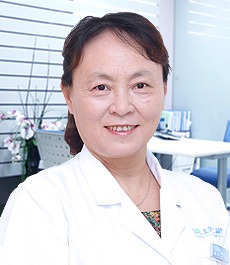Never Ask Gynecologist About Those Before? We Asked For You!
No matter how comfortable you are with your gynecologist, you still may be unsure about some things, like which symptoms are worth mentioning, how often to schedule a check-up, and how to best prepare for an exam. In this article, with gynecologist Yang, we will give you the answers for all those. So please read on.
1. Should I douche before an appointment?
As much as you’d like to smell sweet down there for your doc, it’s a bad idea to douche before an appointment.
When you douche, that leaves us with very few clues about what’s going on in there, says Dr. Yang. She also points out that rinsing with a douche can cause a bacterial infection, since it changes the balance of healthy germs and acid in your vagina. So don’t be afraid to keep things natural.
2. What should I do when irregular discharge occur?
One of the most common concerns gynecologists hear is, “I’m having some discharge. Is that normal?” If it’s clear, doesn’t itch, and doesn’t smell bad, it’s probably fine. But the best way to know is to keep track of yours for a month, since healthy discharge will change throughout your menstrual cycle.
If it’s different than the usual, check with your doctor, because it could be a bacteria infection or an STD. Infections usually have a strong fishy or foul smell, accompanied by itching or burning, she says.
Your doc will probably ask you to remember any changes in the 2 to 3 weeks before the discharge began. Did you have a new sex partner? Did you have unprotected sex? Did you start taking antibiotics, which can lead to a yeast infection? The more clues you can provide, the better she will be able to zero in on a cause and treatment.
3. I have painful periods, what shoud I do?
It’s normal to deal with some cramps and discomfort during your period. But if you don’t get relief from over-the-counter pain killer, or you hurt enough to stay home from school, work, or your favorite Friday night book group, you should bring it up with your doctor ASAP.
There are so many options available to control bleeding and period pain, no one should have to suffer, Dr. Yang says.
Birth control pills and intrauterine devices (IUDs) can reduce or even stop bleeding and cramps, and prescription forms of some pain relievers can help knock out the pain.
4. Why my genitals look so "abnormal"?
“Do I look weird down there?” Unless you see something new, like a mole, lump, or lesion, don’t worry about how your genitals look. Everyone looks different, Dr. Yang says. The labia may be asymmetrical, and there are lots of skin folds and bumps down there. All those differences are usually perfectly normal. But when in doubt, it never hurts to ask.
5. Do I need to do gynecology check-up every year?
Even if the results of your last Pap test and HPV screening were all clear, you should still have gynecology check-up annually. Cancer screenings like paps and mammograms are just one component of the exam. It’s also important to have a yearly exam of pelvic and breasts, which is how we can detect things like fibroids and ovarian cysts, says Yang.
Your doctor will also want to keep tabs on any changes in your period, whether the type of birth control you use is still the best option, and lifestyle issues like smoking and weight. So put that annual exam back on your calendar.
6. Will my gynecogist judge me ?
No matter what your sexual history is, rest assured that our gynecologist is definitely not sitting behind her desk making moral judgments. She simply needs to know the facts so she can figure out the best treatment plan and help you choose the right medications.
At last, with the upcoming Women's Day, we wish you healthy and happy in advance. And in a few days, our gynecology check-up special offers would be available, please stay tuned.

Dr. YANG Fang
Title: Deputy chief physician, Gynecologist
Department: Gynecology
Expertise:
Obstetrics, including gynecological cancer diagnosis, treatment and surgery, laparoscopy and minimally invasive treatments, laparoscopy in combination with infertility diagnosis and treatment, and pregnancy diagnosis and prenatal diagnosis.
Experience:
30 years of experience in 3 different hospitals, a senior medical expert in Gynaecology. Has clinical experience in painless abortion, cervical erosion, gynecological cancer, infertility treatment, laparoscopy and minimally invasive techniques, and laparoscopic embryo removal.
- Doctors' Working Schedule from Feb 17 to Feb 28Feb 17, 2025
- Doctors' Working Schedule from October 12 to October 31Oct 12, 2024
- Doctors' Working Schedule from 20th September to 30th SeptemberSep 20, 2024
- Doctors' Working Schedule from 6th September to 18th SeptemberSep 6, 2024
- Doctors' Working Schedule from 15th August to 31st AugustAug 14, 2024

 (8621)54893781,64688888-801/810
(8621)54893781,64688888-801/810  info@renai.cn
info@renai.cn Chinese
Chinese









 沪公网安备 31010402006742号
沪公网安备 31010402006742号